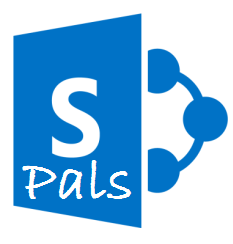In the CSOM, we might have using the Lambda Expression => frequently to load only the required properties. But the Lambda Expression is an Operator in C# not in PowerShell. When, we started coding with the PowerShell CSOM intensively, I required this Lambda to be replaced with its equivalent. When searching for that, Got a wonderful article by Gary here. Wanted to make it to be handy here as well.
To be more precise, let us see a scenario in C#.
using (var ctx = authMgr.GetSharePointOnlineAuthenticatedContextTenant(siteUrl, userName, password))
{
Web web = ctx.Web;
ctx.Load(web.Lists);
ctx.Load(web);
ctx.ExecuteQueryRetry();
List list = web.Lists.GetByTitle("D1");
ctx.Load(list);
ctx.Load(list, li => li.HasUniqueRoleAssignments);
ctx.ExecuteQuery();
System.Console.WriteLine(Convert.ToString(list.HasUniqueRoleAssignments));
}
Gary has come up with a Method which is equivalent to our Lambda Expression – Load-CSOMProperties
The Lambda Expression method is as below. (Re-wrote from Gary’s article)
<#
.Synopsis
Facilitates the loading of specific properties of a Microsoft.SharePoint.Client.ClientObject object or Microsoft.SharePoint.Client.ClientObjectCollection object.
.DESCRIPTION
Replicates what you would do with a lambda expression in C#.
For example, "ctx.Load(list, l => list.Title, l => list.Id)" becomes
"Load-CSOMProperties -object $list -propertyNames @('Title', 'Id')".
.EXAMPLE
Load-CSOMProperties -parentObject $web -collectionObject $web.Fields -propertyNames @("InternalName", "Id") -parentPropertyName "Fields" -executeQuery
$web.Fields | select InternalName, Id
.EXAMPLE
Load-CSOMProperties -object $web -propertyNames @("Title", "Url", "AllProperties") -executeQuery
$web | select Title, Url, AllProperties
#>
function global:Load-CSOMProperties {
[CmdletBinding(DefaultParameterSetName='ClientObject')]
param (
# The Microsoft.SharePoint.Client.ClientObject to populate.
[Parameter(Mandatory = $true, ValueFromPipeline = $true, Position = 0, ParameterSetName = "ClientObject")]
[Microsoft.SharePoint.Client.ClientObject]
$object,
# The Microsoft.SharePoint.Client.ClientObject that contains the collection object.
[Parameter(Mandatory = $true, ValueFromPipeline = $true, Position = 0, ParameterSetName = "ClientObjectCollection")]
[Microsoft.SharePoint.Client.ClientObject]
$parentObject,
# The Microsoft.SharePoint.Client.ClientObjectCollection to populate.
[Parameter(Mandatory = $true, ValueFromPipeline = $true, Position = 1, ParameterSetName = "ClientObjectCollection")]
[Microsoft.SharePoint.Client.ClientObjectCollection]
$collectionObject,
# The object properties to populate
[Parameter(Mandatory = $true, Position = 1, ParameterSetName = "ClientObject")]
[Parameter(Mandatory = $true, Position = 2, ParameterSetName = "ClientObjectCollection")]
[string[]]
$propertyNames,
# The parent object's property name corresponding to the collection object to retrieve (this is required to build the correct lamda expression).
[Parameter(Mandatory = $true, Position = 3, ParameterSetName = "ClientObjectCollection")]
[string]
$parentPropertyName,
# If specified, execute the ClientContext.ExecuteQuery() method.
[Parameter(Mandatory = $false, Position = 4)]
[switch]
$executeQuery
)
begin { }
process {
if ($PsCmdlet.ParameterSetName -eq "ClientObject") {
$type = $object.GetType()
} else {
$type = $collectionObject.GetType()
if ($collectionObject -is [Microsoft.SharePoint.Client.ClientObjectCollection]) {
$type = $collectionObject.GetType().BaseType.GenericTypeArguments[0]
}
}
$exprType = [System.Linq.Expressions.Expression]
$parameterExprType = [System.Linq.Expressions.ParameterExpression].MakeArrayType()
$lambdaMethod = $exprType.GetMethods() | ? { $_.Name -eq "Lambda" -and $_.IsGenericMethod -and $_.GetParameters().Length -eq 2 -and $_.GetParameters()[1].ParameterType -eq $parameterExprType }
$lambdaMethodGeneric = Invoke-Expression "`$lambdaMethod.MakeGenericMethod([System.Func``2[$($type.FullName),System.Object]])"
$expressions = @()
foreach ($propertyName in $propertyNames) {
$param1 = [System.Linq.Expressions.Expression]::Parameter($type, "p")
try {
$name1 = [System.Linq.Expressions.Expression]::Property($param1, $propertyName)
} catch {
Write-Error "Instance property '$propertyName' is not defined for type $type"
return
}
$body1 = [System.Linq.Expressions.Expression]::Convert($name1, [System.Object])
$expression1 = $lambdaMethodGeneric.Invoke($null, [System.Object[]] @($body1, [System.Linq.Expressions.ParameterExpression[]] @($param1)))
if ($collectionObject -ne $null) {
$expression1 = [System.Linq.Expressions.Expression]::Quote($expression1)
}
$expressions += @($expression1)
}
if ($PsCmdlet.ParameterSetName -eq "ClientObject") {
$object.Context.Load($object, $expressions)
if ($executeQuery) { $object.Context.ExecuteQuery() }
} else {
$newArrayInitParam1 = Invoke-Expression "[System.Linq.Expressions.Expression``1[System.Func````2[$($type.FullName),System.Object]]]"
$newArrayInit = [System.Linq.Expressions.Expression]::NewArrayInit($newArrayInitParam1, $expressions)
$collectionParam = [System.Linq.Expressions.Expression]::Parameter($parentObject.GetType(), "cp")
$collectionProperty = [System.Linq.Expressions.Expression]::Property($collectionParam, $parentPropertyName)
$expressionArray = @($collectionProperty, $newArrayInit)
$includeMethod = [Microsoft.SharePoint.Client.ClientObjectQueryableExtension].GetMethod("Include")
$includeMethodGeneric = Invoke-Expression "`$includeMethod.MakeGenericMethod([$($type.FullName)])"
$lambdaMethodGeneric2 = Invoke-Expression "`$lambdaMethod.MakeGenericMethod([System.Func``2[$($parentObject.GetType().FullName),System.Object]])"
$callMethod = [System.Linq.Expressions.Expression]::Call($null, $includeMethodGeneric, $expressionArray)
$expression2 = $lambdaMethodGeneric2.Invoke($null, @($callMethod, [System.Linq.Expressions.ParameterExpression[]] @($collectionParam)))
$parentObject.Context.Load($parentObject, $expression2)
if ($executeQuery) { $parentObject.Context.ExecuteQuery() }
}
}
end { }
}
After this, we can use the method Load-CSOMProperties which is similar to our Lambda Expression.
The actual Usage is as follows.
# Add Necessary Client DLLs
Add-Type -Path "C:SATHISHClientDLLsMicrosoft.SharePoint.Client.dll"
Add-Type -Path "C:SATHISH ClientDLLsMicrosoft.SharePoint.Client.Runtime.dll"
#Get the UserName and Password
$UserName = "sathish@*******.onmicrosoft.com"
$password = Read-Host 'Enter Password' -AsSecureString
$Url = "https://*******.sharepoint.com/sites/DeveloperSite/"
$credentials = New-Object Microsoft.SharePoint.Client.SharePointOnlineCredentials($UserName , $Password)
$context = New-Object Microsoft.SharePoint.Client.ClientContext($Url)
$context.Credentials = $credentials
#Get the Web
$web = $context.Web
$context.Load($web)
#Get the Lists in the Web
$context.Load($web.Lists)
$context.ExecuteQuery()
#Get a specific List
$list = $web.Lists.GetByTitle("RamList")
#Usage of Lambda Operator. I am Loading the HasUniqueRoleASsignments similar to #the Lambda Operator
Load-CSOMProperties -object $list -propertyNames @("HasUniqueRoleAssignments")
$context.ExecuteQuery();
Write-Host $list.HasUniqueRoleAssignments
Happy Coding,
Sathish Nadarajan.

Leave a comment